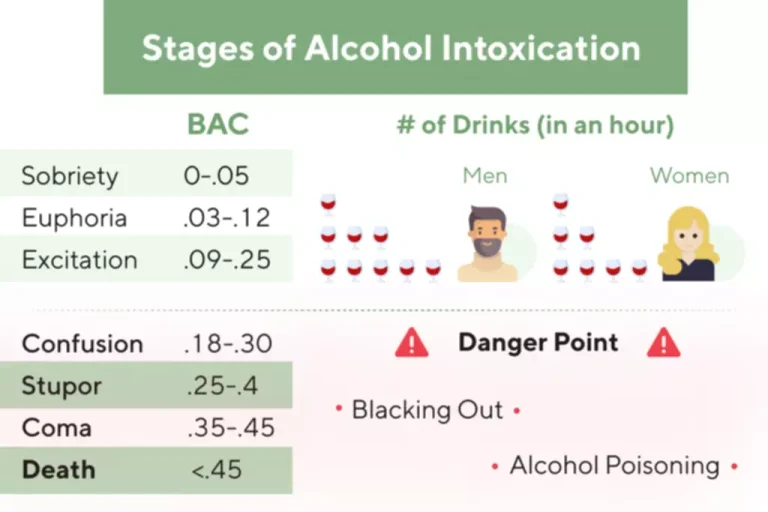Alcohol use disorder Symptoms and causes

The most severe form of alcohol withdrawal is delirium tremens (DTs), characterized by altered mental status and severe autonomic hyperactivity that may lead to cardiovascular collapse. Only about 5 percent of patients with alcohol withdrawal progress to DTs, but about 5 percent of these patients die. Alcoholism was identified in 1956 as an illness by the American Medical Association (AMA).
Chronic Stress and Painful Life Events
- Moderate alcohol consumption does not generally cause any psychological or physical harm.
- Delirium tremens symptoms typically begins about three days after other withdrawal symptoms start.
- These behaviors usually start from experiencing peer pressure or encouragement from friends to binge drink.
- Too much alcohol affects your speech, muscle coordination and vital centers of your brain.
Because alcoholism is a chronic disease and alcohol relapse is common, persistence is a necessity — but success is achievable. While end-stage alcoholism is a dire situation, it’s not a hopeless one. Late-stage alcoholics can get better if they seek treatment, and some of their health problems can even be reversed if caught early enough. While every why do people become alcoholics person’s alcohol addiction is unique, alcohol affects people in similar ways. Most people with an alcohol use disorder progress through three typical stages. But some people who drink face a risk of developing this chronic and progressive disease, which affects roughly 1 in every 8 Americans and contributes to about 88,000 deaths annually.
action: ‘healthbeat’
- Neuroticism is linked to a wide array of mental health problems, including anxiety, depression, and eating disorders as well as substance abuse.
- Alcoholics Anonymous is a decades-old treatment, but one that research shows is effective.
- Young people often start drinking because their friends are doing so.
- Most people with an alcohol use disorder progress through three typical stages.
- Heavy alcohol use is binge drinking on five or more days within the past month, or consuming more than seven drinks per week for women and more than 14 drinks per week for men.
- Don’t forget to take care of yourself, too; consider seeking out your systems of support or even medical help if you’re having trouble.
For more information on symptoms, causes, and treatment of alcohol use disorder see our Diagnosis Dictionary. Later, it can cause fatigue, bleeding and bruising, itchy skin, yellow discoloration of the skin and eyes and fluid accumulation in the abdomen known as ascites. Fluid buildup in end-stage liver https://ecosoberhouse.com/ disease is a particularly ominous sign. Fifty percent of patients with ascites typically die within two years if they don’t have a liver transplant. At this stage, the alcoholic may appear to be functioning normally and is unlikely to have performance problems at work, school or in other settings.
Why Do People Become Alcoholics? Causes & Risk Factors

Factors such as the availability of alcohol, peer pressure, social class and any kind of abuse can play a role in the development of alcohol addiction. Addiction is a psychological process, in the sense that a person’s thoughts become consumed by alcohol, and they behave in ways aimed at obtaining and using more. It is also a physical process, as the body can become physically dependent on alcohol. A person with dependence will experience uncomfortable withdrawal symptoms when not drinking, and they may drink just to avoid feeling these symptoms. Research has shown that individuals who begin drinking alcohol at a young age are more likely to develop alcohol use disorders as adults than those who delay alcohol consumption until later in life.

Knowing that others are going through what you are can help with the loneliness and stigma and support you when you’re struggling. As someone who had always been active and practical, he felt control had been taken away from him; he had lost the connection that came from the much-enjoyed group activity of walking in nature. And his sense of status and meaning and purpose had been eroded when he relinquished his mentoring role and gave up the allotment. AI-driven personal digital assistants (PDAs) are uniquely influencing human behavior.
Stage #1: Occasional abuse and binge drinking
Family and Children’s Programs







